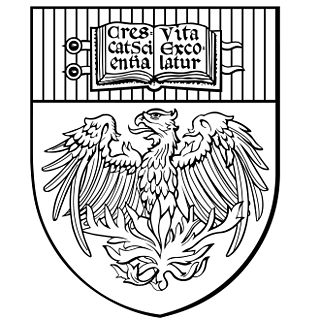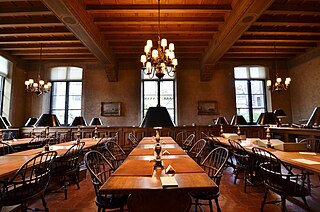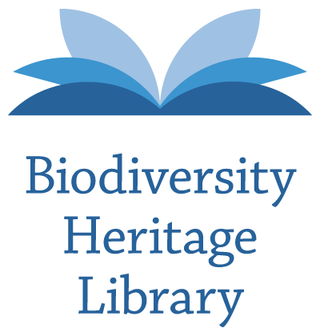The Perseus Digital Library, formerly known as the Perseus Project, is a free-access digital library founded by Gregory Crane in 1987 and hosted by the Department of Classical Studies of Tufts University. One of the pioneers of digital libraries, its self-proclaimed mission is to make the full record of humanity available to everyone. While originally focused on the ancient Greco-Roman world, it has since diversified and offers materials in Arabic, Germanic, English Renaissance literature, 19th century American documents and Italian poetry in Latin, and has sprouted several child projects and international cooperation. The current version, Perseus 4.0, is also known as the Perseus Hopper, and is mirrored by the University of Chicago.

The Newberry Library is an independent research library, specializing in the humanities. It is located in Chicago, Illinois, and has been free and open to the public since 1887. The Newberry fosters a deeper understanding of our world by inspiring research and learning in the humanities and encouraging conversations about ideas that matter. Its mission is rooted in a growing and accessible collection of rare and historical materials.

In the United States, the presidential library system is a nationwide network of 16 libraries administered by the Office of Presidential Libraries, which is part of the National Archives and Records Administration (NARA). These are repositories for preserving and making available the papers, records, collections and other historical materials of every president of the United States since Herbert Hoover, the 31st president from 1929–1933. In addition to the library services, museum exhibitions concerning the presidency are displayed.

The University of Chicago Press is the university press of the University of Chicago, a private research university in Chicago, Illinois. It is the largest and one of the oldest university presses in the United States. It publishes a wide range of academic titles, including The Chicago Manual of Style, numerous academic journals, and advanced monographs in the academic fields. The press is located just south of the Midway Plaisance on the University of Chicago campus.
Artstor is a nonprofit organization that builds and distributes the Digital Library, an online resource of more than 2.5 million images in the arts, architecture, humanities, and sciences, and Shared Shelf, a Web-based cataloging and image management software service that allows institutions to catalog, edit, store, and share local collections.
Roy Rosenzweig Center for History and New Media (RRCHNM), formerly the Center for History and New Media (CHNM), is a research center specializing in digital history and information technology at George Mason University (GMU) in Fairfax County, Virginia. It was one of the first digital history centers in the world, established by Roy Rosenzweig in 1994 to use digital media and information technology to democratize history: to incorporate multiple voices, reach diverse audiences, and encourage popular participation in presenting and preserving the past. Its current director is Lincoln Mullen.
The California Digital Library (CDL) was founded by the University of California in 1997. Under the leadership of then UC President Richard C. Atkinson, the CDL's original mission was to forge a better system for scholarly information management and improved support for teaching and research. In collaboration with the ten University of California Libraries and other partners, CDL assembled one of the world's largest digital research libraries. CDL facilitates the licensing of online materials and develops shared services used throughout the UC system. Building on the foundations of the Melvyl Catalog, CDL has developed one of the largest online library catalogs in the country and works in partnership with the UC campuses to bring the treasures of California's libraries, museums, and cultural heritage organizations to the world. CDL continues to explore how services such as digital curation, scholarly publishing, archiving and preservation support research throughout the information lifecycle.

The Frick Art Reference Library is the research arm of the Frick Collection. It is typically located at 10 East 71st Street on the Upper East Side of Manhattan in New York City. As of 2021, the library's reference services have temporarily relocated to 945 Madison Avenue.

Project MUSE, a non-profit collaboration between libraries and publishers, is an online database of peer-reviewed academic journals and electronic books. Project MUSE contains digital humanities and social science content from some 400 university presses and scholarly societies around the world. It is an aggregator of digital versions of academic journals, all of which are free of digital rights management (DRM). It operates as a third-party acquisition service like EBSCO, JSTOR, OverDrive, and ProQuest.

The Biodiversity Heritage Library (BHL) is the world’s largest open access digital library for biodiversity literature and archives. BHL operates as a worldwide consortium of natural history, botanical, research, and national libraries working together to address this challenge by digitizing the natural history literature held in their collections and making it freely available for open access as part of a global "biodiversity community". The BHL consortium works with the international taxonomic community, publishers, bioinformaticians, and information technology professionals to develop tools and services to facilitate greater access, interoperability, and reuse of content and data. BHL provides a range of services, data exports, and APIs to allow users to download content, harvest source data files, and reuse materials for research purposes. Through taxonomic intelligence tools developed by Global Names Architecture, BHL indexes the taxonomic names throughout the collection, allowing researchers to locate publications about specific taxa. In partnership with the Internet Archive and through local digitization efforts, BHL's portal provides free access to hundreds of thousands of volumes, comprising over 59 million pages, from the 15th-21st centuries.
The Center for Research Libraries is a consortium of North American universities, colleges, and independent research libraries, based on a buy-in concept for membership of the consortia. The consortium acquires and preserves traditional and digital resources for research and teaching and makes them available to member institutions through interlibrary loan and electronic delivery. It also gathers and analyzes data pertaining to the preservation of physical and digital resources, and fosters the sharing of expertise, in order to assist member libraries in maintaining their collections.
The HBCU Library Alliance is a consortium of libraries at Historically Black Colleges and Universities (HBCUs). Founded in 2002 by deans and directors of libraries at HBCUs, the consortium comprises over 100 member organizations. The alliance specifically represents the organizations included in the White House HBCU Initiative. In 2019 the HBCU Library Alliance entered into a national partnership with the Council on Library and Information Resources.

Digital Scriptorium (DS) is a non-profit, tax-exempt consortium of American libraries with collections of medieval and early modern manuscripts, that is, handwritten books made in the traditions of the world's scribal cultures. The DS Catalog represents these manuscript collections in a web-based platform form building a national union catalog for teaching and scholarly research in medieval and early modern studies.
Ithaka Harbors, Inc. is a US not-for-profit, the parent company of digital library website JSTOR, the digital preservation service Portico, and the research and consulting group Ithaka S+R. Its stated mission is to "help the academic community use digital technologies to preserve the scholarly record and to advance research and teaching in sustainable ways". Ithaka was founded in 2003 by Kevin M. Guthrie. Ithaka's total revenue was $105 million in 2019, most of it from JSTOR service fees.

The Medical Heritage Library (MHL) is a digital curation collaborative among several medical libraries which promotes free and open access to quality historical resources in medicine. The MHL is currently digitizing books and journals and is working to expand to the digitization of archival materials and still images. In 2010, the MHL began digitizing titles, mainly monographs, in a variety of medical history and related fields including chemistry, nursing, dentistry, audiology, physiology, psychology, psychiatry, biological science, hydrotherapy, weather, veterinary medicine, gardening, physical culture, and alternative medicine chosen for their scholarly, educational, and research value. Since the inception of the project, materials in audio and video formats have been added to the collection.
American Libraries is a digital collection of ebooks and texts at the Internet Archive. This collection contains over 1,900,000 items sponsored by these partners:
The Mountain West Digital Library (MWDL) is a centralized discovery portal for digital resources from libraries, archives, museums, government agencies, and historical societies in the Mountain West region of the United States. MWDL aggregates metadata from these memory institutions and provides online access to their cultural heritage and scholarly resources at http://mwdl.org. The MWDL provides services to a widespread digital library community and serves as the regional service hub to the Digital Public Library of America for Utah, Nevada, Idaho, Arizona, Montana, and Hawaii.

Tamar Evangelestia-Dougherty is an American librarian and administrator. An archives and special collections expert, Evangelestia-Dougherty was the executive director of the Chicago-based Black Metropolis Research Consortium from 2011 to 2013 and the director of collections and services at the Schomburg Center for Research in Black Culture from 2013 to 2015. She became the first director of the combined Smithsonian Libraries and Archives, the world's largest museum library system, December 6, 2021.

Sarah M. Pritchard is an American academic librarian known for her contributions to research library governance, women's studies and the future of digital libraries.










